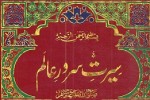
Signs of Prophethood of Muhammad (s.a.w.) in Quran: Some Important Points
-
Seerah
- at 25 October 2017
By Syed Abul A'ala Maududi
(Translated from the book "Seerat e Sarwar e Aalam ï·º", Chapter “The Importance of Prophethood of Muhammad (pbuh) and Its Arguments)
Quran Says;
“(O Prophet), you did not recite any Book before, nor did you write it down with your hand; for then the votaries of falsehood would have had a cause for doubt. But it is a set of Clear Signs in the hearts of those who have been endowed with knowledge.” (29:48-49)
The basis of the argument in this verse is that the Prophet (peace be upon him) was unlettered. His compatriots and his kinsmen among whom he had spent his whole life, from birth to old age, knew fully that he had never read a book nor ever handled a pen.
Sign of Prophethood on His Being Unlettered
Presenting this actual fact Allah says: This is a proof of the fact that the vast and deep knowledge of the teachings of the Divine Books, of the stories of the former Prophets, of the beliefs of the various religions and creeds, of the histories of the ancient nations, and the questions of social and moral and economic life, which is being presented through this unlettered man could not have been attained by him through any means but revelation.1 If he had been able to read and write and the people had seen him reading books and undertaking serious studies, the worshipers of falsehood could have had some basis for their doubts, that he had acquired the knowledge not through revelation but through study and reading. But the fact of his being absolutely unlettered has left no basis whatsoever for any such doubt. Therefore, there can be no ground, except sheer stubbornness, which can be regarded as rational in any degree for denying his Prophethood.
Even after such an assertion and argument by the Quran the audacity of those who try to prove that the Prophet (peace be upon him) was literate is astonishing. The fact, however, is that the Quran here has presented in clear terms the Prophet’s (peace be upon him) being illiterate as a strong proof of his prophethood. The traditions which lend support to the claim that the Prophet (peace be upon him) could read and write, or had learned reading and writing later in life, stand rejected at first glance, for no tradition opposed to the Quran can be acceptable. Then these traditions in themselves are too weak to become the basis for an argument. One of these is a tradition from Bukhari that when the peace treaty of Hudaibiya was being written down, the representative of the disbelievers of Makkah objected to the word Rasul-Allah being added to the name of the Prophet (peace be upon him). At this the Prophet ordered the writer (Ali, may Allah be pleased with him) to cross out the word Rasul-Allah and write Muhammad bin Abdullah instead. Ali refused to cross out Rasul-Allah. Then the Prophet (peace be upon him) took it in his own hand, struck out the word himself and wrote Muhammad bin Abdullah.
But this tradition from Bara bin Azib appears at four places in Bukhari and at two places in Muslim and everywhere in different words:
(1) At one place in Bukhari’s Kitab-us-Sulh. The words of this tradition are to the effect: “The Prophet (peace be upon him) told Ali to strike out the words. He submitted that he could not do that. At last, the Prophet (peace be upon him) crossed them out with his own hand.”
(2) In the same book the second tradition is to the effect: “Then he, the Prophet (peace be upon him) said to Ali: Cross out Rasul-Allah. He said: By God, I shall never cross out your name. At last, the Prophet (peace be upon him) took the document and wrote: This is the treaty concluded by Muhammad bin Abdullah.”
(3) The third tradition, again from Bara bin Azib is found in Kitab-ul-Jizia in Bukhari to the effect: “The Prophet (peace be upon him) himself could not write. He said to Ali: Cross out Rasul-Allah. He submitted: By God, I shall never cross out these words. At this, the Prophet (peace be upon him) said: Show me the place where these words are written. He showed him the place, and the Prophet (peace be upon him) crossed out the words with his own hand.”
(4) The fourth tradition is in Bukhari’s Kitab-ul-Maghazi to the effect: “So the Prophet (peace be upon him) took the document although he did not know writing, and he wrote: This is the treaty concluded by Muhammad bin Abdullah.”
(5) Again from Bara bin Azib there is a tradition in Muslim (Kitab-ul-Jihad) saying that on Ali’s refusal the Prophet (peace be upon him) himself wiped off the words Rasul- Allah.
(6) The second tradition from him in the same book says, “The Prophet (peace be upon him) said to Ali: Show me where the word Rasul-Allah is written. Ali showed him the place, and he wiped it off and wrote Ibn Abdullah.
The disparity in the traditions clearly indicates that the intermediary reporters have not reported the words of Bara bin Azib (may Allah be pleased with him) accurately. Therefore, none of these reports can be held as perfectly reliable so that it could be said with certainty that the Prophet (peace be upon him) had written the words “Muhammad bin Abdullah” with his own hand. Probably when Ali, refused to wipe off the word Rasul-Allah, the Prophet might have himself wiped it off after finding out the place where it was written, and then might have gotten the word Ibn Abdullah substituted by him or by some other writer. Other traditions show that there were two writers who were writing down the peace treaty; Ali and Muhammad bin Maslamah (Fath al-Bari). Therefore, it is not impossible that what one writer did not do was done by the other writer. However, if the Prophet (peace be upon him) actually wrote his name with his own hand, there are plenty instances of this in the world. The illiterate people learn to write their own name although they cannot read or write anything else.
The other tradition on whose basis it has been claimed that the Prophet (peace be upon him) was literate, has been reported by Ibn Abi Shaibah and Umar bin Shabbah from Mujahid. It says: “The Prophet (peace be upon him) had learned reading and writing before his death.” But in the first place, it is a weak tradition on account of its links as said by Hafiz Ibn Kathir: “It is weak: it has no basis.” Secondly, it is weak otherwise also, for if the Prophet (peace be upon him) had really learned reading and writing later in life, it would have become a well-known fact. Many of the companions would have reported it, and it would also have been known from which person (or persons) he had learned this. But no one except one man, Aun bin Abdullah, from whom Mujahid heard this, has reported it. And this Aun was not even a companion, but a follower of the companions, who does not at all tell from which companion (or companions) he got this information. Evidently, on the basis of such weak traditions nothing which contradicts well known facts can become acceptable.2
That is, the presentation of a Book like the Quran by an unlettered person, and the manifestation by him, all of a sudden, of extraordinary qualities of character while nobody ever noticed him making any preparation for these previously, are in fact the clearest signs which serve as pointers to his prophethood for those who are possessed of knowledge and wisdom.” If one reviews the life-story of any great historical personage, one can always discover the factors in his environment, which molded his personality and prepared him for the excellences and qualities that emanated from him in life. There always exists a clear relationship between his environment and the component aspects of his personality. But no source whatever can be discovered in his environment of the wonderful qualities and excellences that the Prophet Muhammad (peace be upon him) displayed. In his case, neither in the contemporary Arab society nor in the society of the neighboring countries with which Arabia had any relations can one discover those factors which could have any remote relationship with the component aspects of the Prophet’s (peace be upon him) personality. This is the reality on the basis of which it has been asserted here that the Prophet Muhammad’s (peace be upon him) personality is not one sign but a collection of many clear signs. An ignorant person may not see any of these signs but those who are possessed of knowledge have become convinced in their hearts by seeing these signs that he is most certainly a true Prophet of Allah.3
Quran says; “They say: “Why were Signs9 from his Lord not sent down upon him?” Say: “The Signs are only with Allah. As for me, I am no more than a plain warner. Does it not suffice for them (as a Sign) that We revealed to you the Book that is recited to them? Surely there is mercy and good counsel in it for those who believe.” (29:50-51)
That is, “A Book like the Quran has been sent down to you in spite of your being unlettered. Is it not by itself a great miracle which should convince the people of your Prophethood? Do they yet need another miracle after this? The other miracles were the miracles for those who witnessed them. But this miracle is ever present in front of them. It is being recited before them almost daily; they can witness it as and when they like.3
Witnessing His Life before Prophethood as a Sign
“I have spent a lifetime among you before this. Do you, then, not use your reason?” (Quran 10:16 part)
This is a very strong argument against their accusation that Muhammad (peace be upon him) was himself the author of the Quran but was ascribing it to Allah, and in support of the Prophet’s (peace be upon him) claim that it was being sent down to him by Allah, Who was its Author. The argument is this: You yourselves have witnessed the forty years of his life before his appointment to Prophethood. He was born in your own city and passed his boyhood, youth and middle age before your very eyes. He lived among you and had all kinds of relations, social, marital, economic, etc. with you. So much so that no aspect of his life was hidden from you. Did you notice anything in his whole life that might show that he could be the author of this Book? Do you not use your commonsense?
The question posed in the Quran implied two things which were well known to everyone in Makkah about the Prophet (peace be upon him):
First, during the forty years of his life before Prophethood, he had neither received any education nor training nor sat in any company that should have enabled him to become the author of such a Book as was full of unique things that were unknown to the people around him. No one had ever heard from him anything about the problems that had been dealt with in different Surahs of the Quran. So much so that not even a relative or close friend of his had ever noticed anything in his talk or in anything about him that might have shown any signs of gradual development towards it before he made his great claim to Prophethood when he reached the age of forty. This was a clear proof of the fact that the Quran was not the invention of his own mind and that it must have been sent down to him from outside. For it is impossible for a human being to produce anything like this, all of a sudden and without ever manifesting any signs of its evolution and development in his earlier life. That is why when some intelligent people of Makkah felt the absurdity of this accusation, they began to say that it was some other person who taught these things to him. But this was even more absurd than the first thing because they could not point out specifically a single person in the whole of Arabia, not to say of Makkah, who had the ability of producing such unique things as were contained in the Quran. They also knew that a person of such high caliber could not have remained obscure in some unknown corner for forty years.
The second thing, that had distinguished him during those forty years of his life, was his noble character both from the negative and from the positive aspects. He was never known to have told a single lie or practiced any kind of deceit, forgery, cunning, craftiness and the like in any way whatsoever, On the other hand, all those people with whom he had come into contact in any capacity bore witness to the fact that he had been truthful, honest, and trustworthy without any blemish whatsoever. As an instance, a most well known historical fact may be cited. Only five years before his Prophethood, the Kaabah was damaged by rains. When they were re-building it, a quarrel arose among the different clans of the Quraish as to who should have the honor of setting Hajr-i-Aswad (the Black Stone) in its proper place. Therefore it was agreed that the one who would be the first to enter into the Haram next morning should arbitrate in the quarrel. Next morning the first person who entered the Haram was Muhammad (peace be upon him). At this all the people cried out with joy, he is an absolutely trust worthy man, and we are fully satisfied with him; he is Muhammad (peace be upon him).” This is how Allah had made that large gathering of the Quraish bear witness to the fact that he was “the trustworthy” before appointing him as His Messenger (peace be upon him). Therefore there was no justification for anyone to accuse the man, who had never told a lie nor ever practiced forgery nor craftiness in his whole life, of ascribing falsely to Allah his own literary creation, and claiming categorically and persistently that it was of divine origin.
That is why Allah has asked His Messenger (peace be upon him) to refute their absurd charge by saying, as it were, only this: O my people, use your common sense before making this absurd accusation, for I am not a stranger or a foreigner among you. I have lived a life time of forty years among you before making a claim that I have received revelation from Allah. How can you expect from my past that I would present the Quran to you as Allah’s Book, without gaining knowledge from Him and without His command?" See (Surah Al-Qasas, E.N. 109).4
“Even so We revealed to you, (O Prophet), a spirit by Our command. (Ere to that) you knew neither what the Book nor what the faith was. But We made that spirit a light whereby We guide those of Our servants whom We please to the Right Way. Surely you are directing people to the Right Way.” (Quran 42:52)
Before his appointment to Prophethood, the Prophet (peace be upon him) had never had any idea that he was going to receive a Book, or that he should receive one, but he was completely unaware of the heavenly Books and the subjects they treated. Likewise, although he believed in Allah, intellectually he was not aware of the requirements of the faith in Allah, nor did he know that along with that belief it was also necessary that he should believe in other things, the angels, the Prophethood, the divine Books and the Hereafter. Both these things were such as were not hidden even from the disbelievers of Makkah. No one belonging to Makkah could bear witness that he had ever heard anything pertaining to a divine Book from the Prophet (peace be upon him) before his sudden proclamation of the Prophethood, or any such thing that the people should believe in such and such things. Obviously if a person had already been looking forward to becoming a prophet, it could not be that the people who remained socially associated with him day and night for 40 years should not have even so much as heard the word Book and the faith from him, and after 40 years he should suddenly have started making fiery speeches on the same themes.5
“(O Prophet), you never looked forward for the Book to be revealed to you. It is out of sheer Mercy of your Lord that it was (revealed to you). So do not lend any support to the unbelievers.” (Quran 28:86)
This thing is being presented as a proof of the Prophet Muhammad's (peace be upon him) prophethood. Just as the Prophet Moses (peace be upon him) was unaware that he was going to be appointed a Prophet, and sent on a grand mission, when he had never even expected or wished for such a thing, but had been suddenly called upon while on a journey and made a Prophet and assigned a mission which had no relevance with his previous life. So was precisely the case with the Prophet Muhammad (peace be upon him). The people of Makkah knew well what kind of life he was leading till a day when he came down from the cave of Hira with the message of prophethood. They were fully aware of his occupations, of the topics of his conversation, of the nature of his interests and activities. No doubt it was a life which was an embodiment of truth, honesty and righteousness, a model of nobility, peacefulness, fulfillment of obligations and rights of others and of the service to humanity, but there was nothing in it which could give somebody any idea that the righteous man was going to make a claim to prophethood the next day. There was no one among his most intimate friends and relations and neighbors, who could say that he had already been preparing to become a Prophet. No one had ever heard a word on the themes and problems and topics from him, which became the subject of his daily conversation all of a sudden after the revolutionary moment in the cave of Hira. No one had heard him employing the kind of diction and words and terms, which the people started hearing from him in the shape of the Quran. He had never stood up for preaching, had never given a message or started a movement, and none of his activities had ever indicated that he was anxious to undertake a program for the solution of the social problems or for religious or moral reformation. Until the day before this revolutionary moment, he was leading the life of a trader, who earns his living by fair and lawful means. Who lives a happy life with his family, receives his guests, helps the poor and treats his relatives well, and at times retires from society into seclusion for the sake of worship. For such a person it would be a great change if he started making, all of a sudden, world moving orations, preaching a revolutionary message, producing a sublime literature and propounding an enduring philosophy of life and a profound system of thought and morality and social life. For psychologically too, such a change is not possible through any kind of preparation and conscious effort. Any such effort and preparation, in any case, has to pass through certain evolutionary stages, which cannot remain hidden from the people among whom a person is passing his life. Had the Prophet’s (peace be upon him) life passed through any such stages of gradual development, hundreds of the people in Makkah would have come out to say, “Did we not tell you beforehand that this man would one day make a tall claim?” But history bears evidence that no one in Makkah ever made such an objection although the disbelievers of Makkah raised all sorts of other objections against the Prophet (peace be upon him).
Then another thing: the Prophet (peace be upon him) never wished for or expected or awaited his appointment to prophethood, but he came across this experience all of a sudden quite unexpectedly. This is supported by the event that has been reported in the traditions in connection with the beginning of revelation. After his first meeting with the Angel Gabriel and the revelation of the initial verses of Surah Al-Alaq he rushes back home from Hira trembling with fear, and says to his wife, “Cover me with a cloak! Cover me with a cloak!” After a while when he recovers a little from the state of anxiety, he relates what he had experienced to his wife and says, “I feel there is danger to my life!” She responds, “No, never! Allah will never bring you to grief: you render the rights of your kindred, you support the indigent, help the poor, treat your guests well, and are ever ready to contribute to a good cause.” Then she takes him to Waraqa bin Naufal, who was her cousin and a righteous and knowledgeable person from among the people of the Book. Hearing from him what had happened, Waraqa says without any hesitation, “The one who came to you is the same Namus (the specially appointed divine messenger), who used to come to Moses (peace be upon him). I wish I were a young man and could live till the time when your people will expel you.” The Prophet (peace be upon him) asks, “Will my people expel me?” He replies, “Yes; no one has passed before, who brought same thing that you have brought, and his people did not turn hostile to him.”
This whole event depicts the state which a simple man will naturally undergo when he is confronted unexpectedly by a most extraordinary experience all of a sudden. If the Prophet (peace be upon him) had already been anxious to become a prophet and thinking that a man like him ought to be a prophet, and had been meditating and straining his mind and awaiting the arrival of an angel with a message, he would have been filled with delight at the experience in the cave, and descending from the mountain would have gone straight before his people and proclaimed Prophethood. But, quite to the contrary, he is confounded at what he had seen, reaches home trembling and lies in bed fully covered up. When he is composed a little, he tells his wife quietly what had happened in the solitude of the cave, and expresses feelings of anxiety and insecurity. How different is this state from the state of a candidate for prophethood! Then, who can be better aware of the husband’s life, his ambitions and thoughts, than the wife? If she had perceived before-hand that the husband was a candidate for prophethood and had been anxiously awaiting the arrival of the angel, her reply would have been different from what Khadijah (may Allah be pleased with her) said. She would have answered, “Dear husband! Why are you so agitated? You have got what you have been longing for long. Now, flourish as a saint: I too shall get ready for collecting gifts and offerings.” But on the basis of what she had seen of her husband during her 15 years long companionship, she did not take more than a moment to understand that Satan could not have come to a righteous and selfless man like him, nor could Allah have put him to a severe test. Therefore, whatever he had seen was the very truth and reality.
The same is also true in the case of Waraqa bin Naufal. He was not an outsider, but a member of the Prophet’s (peace be upon him) own clan and a brother in law by a close relationship. Then being a knowledgeable Christian he could discriminate the prophethood and book and revelation from fabrication and fraud. Being the Prophet’s (peace be upon him) senior by many years his whole life since childhood had been spent before him. Therefore, when he heard what the Prophet (peace be upon him) had to say about his experience in the cave, he at once said that it was most surely the same Angel who used to bring divine messages to the Prophet Moses (peace be upon him). For in this case also precisely the same thing had happened as in the case of the Prophet Moses (peace be upon him). He also was a pure and righteous person, simple in thought and without any preconceived notions about prophethood, he also had experienced the same thing unexpectedly in full consciousness. Therefore, without the least hesitation, he was led to the firm conclusion that there was no self deception or satanic insinuation involved, but whatever the honest man had seen, without any will or desire on his own part, was in fact, an experience of the reality.
This is such a clear proof of the Prophet Muhammad’s (peace be upon him) prophethood that a realistic person can hardly deny it. That is why it has been presented as a proof of prophethood at several places in the Quran. For example, in Surah Yunus it has been said: “O Prophet, say to them: Had Allah willed so, I would never have recited this Quran to you, nor would He have told you anything (about its existence). I have already lived a lifetime among you before its revelation. Do you not use common sense?” (Ayat 16). And in Surah Ash-Shura it has been said: “O Prophet, you did not know at all what was the Book and what was the faith but We made that revelation a light by which We show the way to any of Our servants We will.” (Ayat 52). For further explanation, see (E.N. 21 of Surah Yunus), (E.Ns 88 to 92 of Surah Al-Ankabut), and (E.N. 84 of Surah Ash-Shuara).6
“A Messenger from Allah, reciting from Purified Scrolls; in writings wherein are scriptures, absolutely true and unerring.” (Quran 98:2-3)
Here, the Prophet (peace be upon him) has been called the clear evidence, for his life before and after Prophethood, his presenting a Book like the Quran in spite of being un-lettered, his bringing about an extraordinary revolution in the lives of the converts to Islam through education and training, his educating the people in rational beliefs, clean and pure forms of worship, excellent morals and the best principles and injunctions for human life, perfect harmony and agreement between his word and deed, and his constancy of purpose in respect of his message in spite of every kind of resistance and opposition, all these were clear signs of the truth that he was Allah’s Messenger.7
Quran Is a Miraculous Speech and Sign of the Prophethood
“This Book, beyond all doubt, was revealed by the Lord of the Universe. Or do they say: “He has fabricated it?” Nay, it is the Truth from your Lord” (Quran 32:2-3 part)
Here, what has been said is not merely that this Book has been sent down by the Lord of the Worlds, but, besides, it also asserts most forcefully: “It is without any doubt the Book of God: there is absolutely no room for doubt about its having been revealed by Allah.” If this assertive sentence is studied in the actual context itself, it will be seen that it contains the argument also along with the assertion, and this argument was not hidden from the people of Makkah before whom the assertion was being made. The whole life of the person presenting it had been spent before them. They had known him before he presented the Book as well as after he had presented it. They knew that the person presenting the Book with that assertion was the most righteous, the most serious and the most pious and virtuous man of their society. They also knew that until a day before he made the claim to prophethood, no one had ever heard from him those things which he had started presenting suddenly just after his claim to prophethood. They found a marked difference between the diction and style used in the Book and the diction and style used by Muhammad (peace be upon him) himself, in his daily life. They also recognized naturally that one and the same person could not have two styles so different from each other. They were also experiencing the highly miraculous literature being presented in the Book and, being the Arabic speaking people themselves, knew that all their literary men and poets were feeling utterly helpless in producing anything the like of it. They were also not unaware that there was a world of difference between the literary productions and orations of their poets and sorcerers and orators, and the divine discourses being recited before them and the sublimity of the pure themes being presented in them. They did not see in the Book and in the message of the one presenting it any trace whatever of selfishness, which is always present in the work and message of a false claimant to prophethood. They could not find out, however, hard they might have tried, that Muhammad (peace be upon him) by laying claim to Prophethood was trying to secure a certain benefit for himself or his family or his clan and tribe, or that he had any vested interest in the message he gave. Then, they could also see what sort of the people of their society were being drawn to his message and what great revolution was taking place in them as soon as they came in contact with his invitation. All these things together supported and proved the assertion and claim. That is why in that background it was enough to say that it is, beyond any doubt, a Book that has been sent down by the Lord of the Worlds. No further argument was needed to substantiate the claim.8
- Towards Understanding Quran, Surah Al-Ankboot , translated by Dr. Zafar Ishaq Ansari.
- Towards Understanding Quran, Surah Al-Ankboot , translated by Dr. Zafar Ishaq Ansari.
- Towards Understanding Quran, Surah Al-Ankboot , translated by Dr. Zafar Ishaq Ansari.
- Towards Understanding Quran, Surah Yunus , translated by Dr. Zafar Ishaq Ansari.
- Towards Understanding Quran, Surah Ash-Shuraa, translated by Dr. Zafar Ishaq Ansari.
- Towards Understanding Quran, Surah Al-Qasas, translated by Dr. Zafar Ishaq Ansari.
- Towards Understanding Quran, Surah Al-Baiyina, translated by Dr. Zafar Ishaq Ansari.
- Towards Understanding Quran, Surah As-Sajda, translated by Dr. Zafar Ishaq Ansari.
--Author Syed Abul A'ala Maududi, compiled in Urdu by Naeem Siddiqui, and Abdul Wakeel Alvi, compiled in English by Jawed Anwar
Recent posts
-
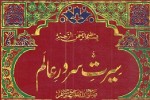
The Miracles of Prophets -2
17 May 2019 -
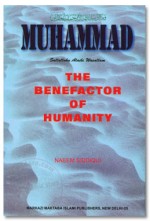
Muhammad (pbuh): The Benefactor of Humanity
08 March 2019 -
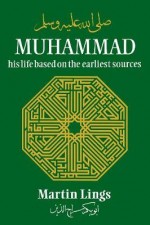
Muhammad his life based on the earliest source
08 March 2019 -
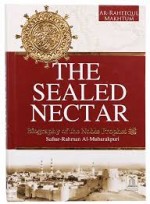
The Sealed Nectar
08 March 2019 -
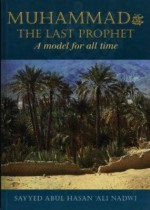
Muhammad The Last Prophet a model for all time
08 March 2019 -
Muhammad The Guide of Mankind
08 March 2019
